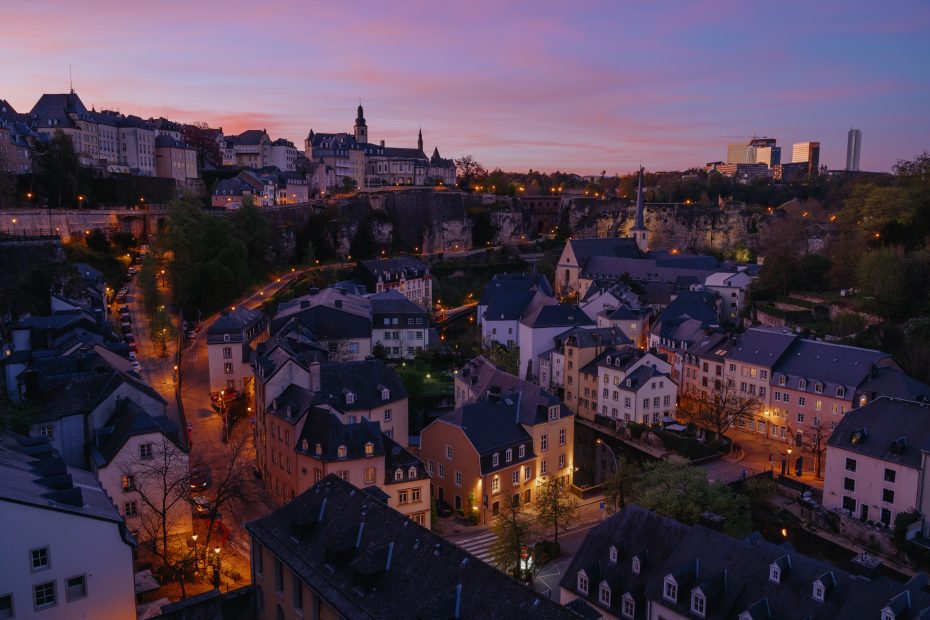Table of Contents
Introduction
The small European country of Luxembourg packs a big punch. With a land area of just 998 square miles, it is one of the smallest sovereign nations in Europe. However, it has a rich history spanning over a thousand years and has emerged as a cosmopolitan country with a robust economy and high standard of living. Luxembourg manages to blend old-world charm with modern innovation and culture.
A Long and Fascinating History
Although Luxembourg may be small, it has a long history of occupation by various European powers. The first known settlements in the area date back to the Celtic Treveri tribes. In the 10th century, Luxembourg was controlled by the Counts of Luxembourg, later passing to the Dukes of Burgundy, Hapsburg Spain, and eventually the French. Luxembourg did not achieve full independence until the 19th century.
Despite foreign rule for centuries, Luxembourgers fiercely protected their cultural identity and traditions. The people embraced independence when it finally arrived in the 1800s, adapting quickly to self-governance and expanding infrastructure.
Key Historical Sites and Landmarks
Exploring Luxembourg offers glimpses into its storied past. The capital city of Luxembourg has a beautifully preserved old town with winding alleys, arching bridges, towers, and fortified walls. Vianden Castle is a breathtaking medieval structure perched atop a rocky promontory. Clervaux Castle houses an exhibit of powerful World War II photographs. The Family of Man museum contains Edward Steichen’s iconic photography exhibit highlighting people’s shared humanity.
Modern Economy and Infrastructure
Today, Luxembourg has one of the highest GDP’s per capita in the world. It has developed into a major financial hub and center of private banking in Europe. With business friendly policies and technological infrastructure, Luxembourg attracts major companies and startups from around the world. It also boasts an ultra-modern transportation system of highways, railways, trams, and buses.
Vibrant Contemporary Culture
Beyond business, Luxembourg offers rich cultural attractions and diversity. There is a thriving arts scene, with galleries, concerts, festivals, and more. The people maintain strong culinary traditions – trying local dishes like judd mat gaardebounen, trout, and gromperekichelcher is a must. The country also has a reputation for outstanding local wines and beer. Nightlife in the cities offers bars, clubs, and live music for young professionals and visitors.
Stunning Natural Landscapes
Luxembourg’s natural beauty can be experienced by hiking forest trails, exploring deep gorges, and wandering along rivers. The Mullerthal Trail offers 112 km of paths past whimsical rock formations. The Moselle River Valley boasts steep vine-covered slopes lining the winding river. The Ardennes region to the north offers rugged hills and forests perfect for outdoor recreation.
Looking to the Future
As Luxembourg progresses into the future economically and socially, it keeps traditions alive by preserving historic sites and promoting local culture. Luxembourgers take great pride in their history while also embracing new technology and ideas. The juxtaposition of old and new makes Luxembourg a dynamic country to continue developing and evolving.
Conclusion
Luxembourg may be small in size, but it offers big attractions. The country charms visitors with its cobbled medieval towns, grand castles, deep gorges, and modern cities full of energy. Luxembourgians carry forward centuries of history while adapting and growing. The blend of old world heritage and contemporary innovation makes Luxembourg a fascinating place to explore and experience.
FAQs
What is Luxembourg best known for?
Luxembourg is best known for its robust financial sector, multilingual culture, preserved medieval architecture in its capital city, dazzling natural landscapes like the Mullerthal region, and world-class museums such as the Family of Man photographic exhibition.
What languages are spoken in Luxembourg?
Luxembourg has three official administrative languages: French, German, and Luxembourgish. Many Luxembourgers also speak English and other languages fluently.
What type of economy does Luxembourg have?
Luxembourg has a highly developed, stable economy that is focused on services, especially in finance, information technology, logistics, and telecommunications. Major companies are attracted by Luxembourg’s business-friendly policies.
What are some typical Luxembourgish dishes?
Luxembourgish cuisine includes dishes such as judd mat gaardebounen (smoked pork collar with broad beans), gromperekichelcher (potato fritters), trout with almonds, black pudding, and quetschentaart (plum tart).
What is the best way to experience Luxembourg’s natural beauty?
Hiking trails such as the Mullerthal Trail, cycling along the Moselle River Valley, and exploring the forests and hills of the Ardennes region allow visitors to immerse themselves in Luxembourg’s remarkable landscapes.
